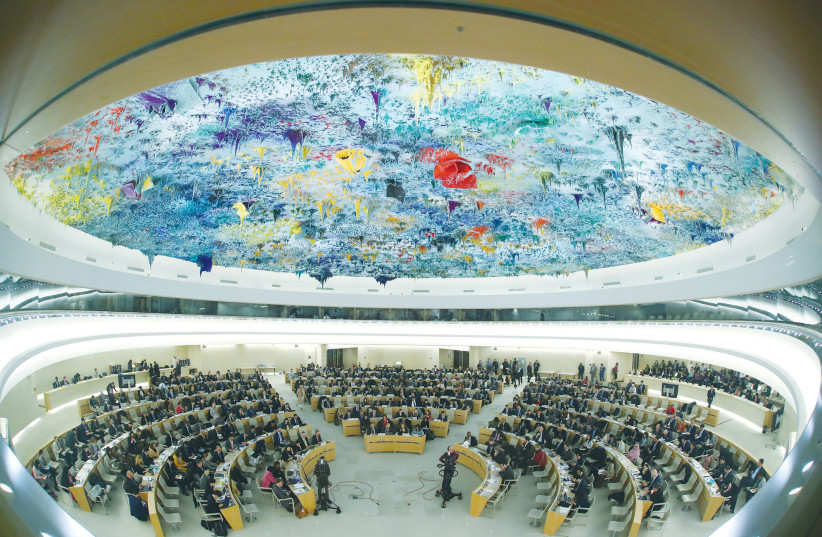The latest issue of Foreign Affairs (May-June, 2023) features an article provocatively titled “Israel’s one-state reality.” Its subtitle gives away its real purpose, for it proposes that it’s time to give up on the two-state solution.
For years, Foreign Affairs was the flagship of writing on issues related to US foreign policy. It used to serve as a bellwether for where the US foreign policy establishment was heading. For example, in 1947 it published a long cable by foreign service officer George Kennan, on how America was to respond to the challenge of Soviet expansionism at the dawn of the Cold War.
The latest Foreign Affairs article essentially presents a false choice for Israel: either the Jewish state should openly embrace the two-state solution or just admit that it is heading for a “one state reality,” and may even be there already. The article places those who have reservations about a two-state outcome as “defending colonialist principles in a post-colonial world.” This is name-calling dressed up as an intellectual argument.
Even so, the article’s authors qualified their conclusions about Israel’s apartheid, stating: “Israel’s system may not technically be apartheid.”
US administrations have been correct in denying the attempts by some who are trying to force this choice by designating Israel now as an “apartheid state.” In October 2011, justice Richard Goldstone of South Africa headed a UN commission that examined charges made by the UN Human Rights Council concerning how Israel handled the Gaza War (Operation Cast Lead, December 2008-January 2009).

Goldstone took Israel to task on the questions that the UN raised. But then he withdrew his tough conclusions in an op-ed for The Washington Post that grappled with the question of whether Israel was an apartheid state today. There, he explicitly dropped the apartheid charge, writing that “in Israel, there is no apartheid.” Still, the writers at Foreign Affairs make a nasty assertion by concluding that “Israel is even worse than apartheid.”
One reason Israelis have been reluctant to embrace the one-state model is because of the debate over Israel’s future borders. Yitzhak Rabin clearly opposed solutions that forced Israel to accept, in principle, a withdrawal to its 1967 lines. He was absolutely clear on this point: “We will not return to the June 4, 1967 lines.”
Rabin insisted that Israel was entitled to defensible borders, which was also a central theme for Yigal Allon, his commander in the pre-state Palmah. This condition was echoed in the speeches of Rabin, Ariel Sharon and Benjamin Netanyahu.
Current conditions have made these territorial considerations even more compelling, given that Iran is seeking to spread its power beyond Iraq to Israel’s eastern boundaries with Syria and Jordan. They will undoubtedly govern how Israel sees the question of its future borders.
The writer has served as Israel’s ambassador to the United Nations and director-general of the Foreign Ministry.
